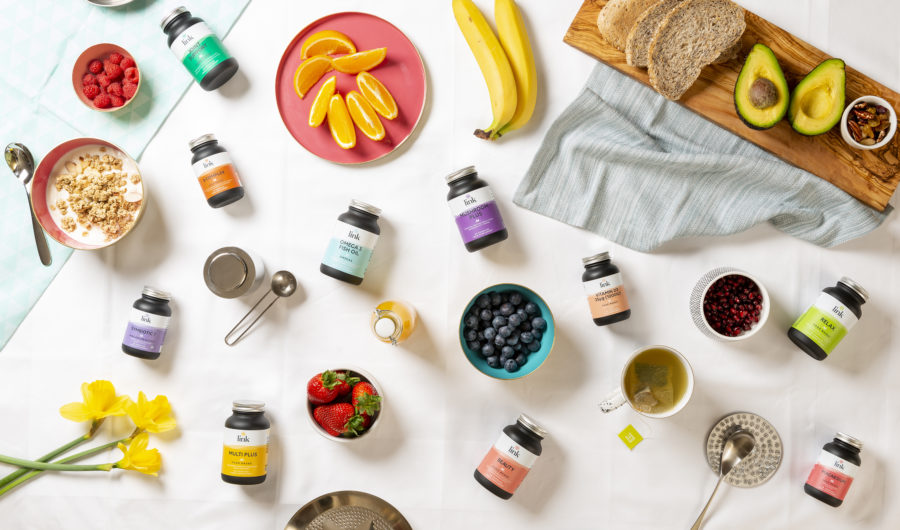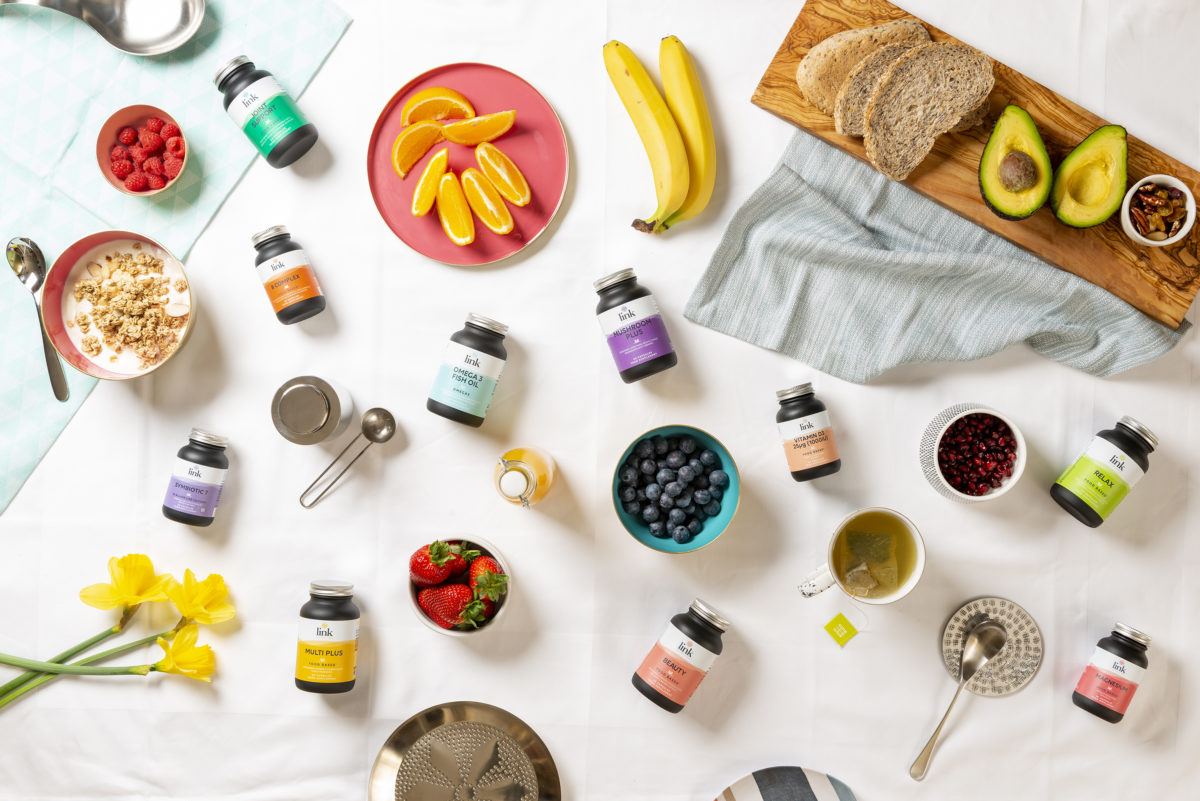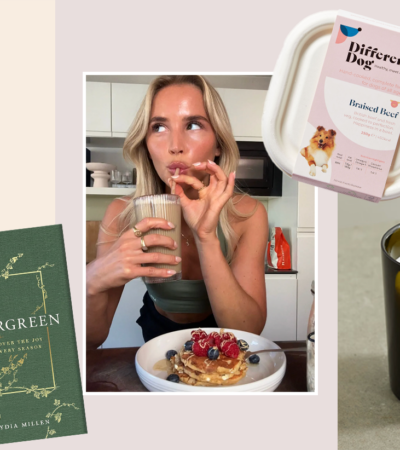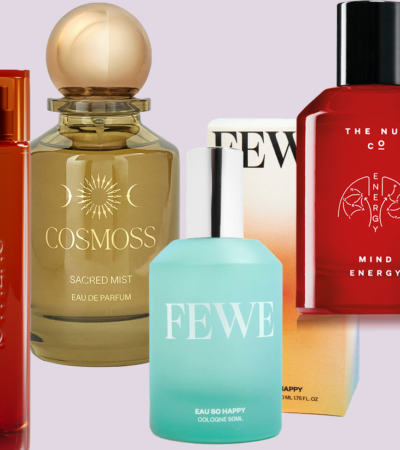The topic of supplements can be a confusing one. With so many brands lining up along the supplement aisle and a whole host of different vitamins and minerals to choose from, the search for something that ticks your nutritional boxes can be like trying to find a needle in a haystack. The supplement industry is ginormous but how can we make an informed decision on the right brands to choose and how can we make sure we pick good quality supplements?
Something we’ve come to discover is that not all supplements are created equal… or well, as a matter of fact. Bulking, artificial ingredients are used far too much it supplements and being the health-conscious lot we are, we really care about what we put inside our bodies. This is why we now opt for food-based supplements and Link Nutrition is a brand we whole-heartedly recommend to anyone searching for high-quality supplements to support their wellbeing. They are all about keeping their products completely natural and connecting back to nature, without the use of unnecessary additives, fillers and anti-caking agents unlike a lot of other well-known supplements on the market. Their mission is to focus on the basics and what really matters: nutrient dense food, in conjunction with plenty of sleep and regular exercise. Their commitment to quality means all ingredients are sourced ethically and are non-GMO for the cleanest boost.
We wanted to help provide you with the 101 on supplements, a checklist, if you will, so we sat down with Libby Limon, Link’s in-house nutritional therapist to help answer the questions you might be needing the answers to.
Buying
I feel overwhelmed when I walk down the supplement aisle. What should I look for in a brand?
Generally, the more info on the back label the better even if you don’t understand it all!. This is because quality brands want to show that there have the best quality formulations, ingredients and overall products. Look at the NRV values ( this is the new name for the recommended daily amount) this will ensure you have meaningful amounts.
Is it true that the more expensive a brand, the better the quality?
Generally, cheap products contain cheap poor quality ingredients. So you get what you pay for, however, at the other end of the spectrum where they are super expensive, you are often paying for brand or marketing markup. Mid-price supplements usually come in around £15-£30 I would go for supplements in this range.
How can you tell if a supplement is of high quality?
Look for the form that each ingredient comes in. Food-based is a good place to start, as these are produced more naturally in a form the body will recognise and generally be able to absorb and use effectively. Look for brands that avoid bulkers, fillers and additives.
How do I figure out what vitamins and minerals I need?
The doctor will test for a couple of basics, vitamin D, iron and B12, but not much else when it comes to nutrition. The best route is to speak to a nutritionist to get a full assessment as to what will help. Usually, this is money well spent as this will avoid spending money on supplements that won’t work for you. This is also really important if you are on any medication as some supplements can interact with them. Most reputable supplement brands have a nutritionist that you can ask questions about the product as well. Give them a call or send them an email if you have questions.
Taking
Do I actually need to take supplements if I have a healthy diet?
Some nutrients are hard to get even if you have a healthy diet. Most people can benefit from topping up on their vitamin d, magnesium, omega 3s.
There are also all sorts of reasons apart from diet that your nutrition levels might need a helping hand. For example, if you are prone to winter lurgies, vitamin c, zinc and medicinal mushrooms can all help boost your natural immunity or if you are struggling to relax and sleep, particular herbs such as lemon balm and cherry can help.
Do I need to pair up my supplements to enhance their benefits?
Bioavailability is a key term in supplements, it means how well a supplement is absorbed into the body. Some nutrients help each other to be absorbed for example black pepper helps with turmeric absorption. On the whole, a good supplement brand will combine the synergistic nutrients in one product.
Is it bad to take too many different supplements?
Theoretically, it would be hard to do yourself harm (unless you are pregnant or on medications) by taking many different ones. However, your wallet would probably take a battering! A nutritionist can really help narrow down what would be really useful and you would see the same benefit. You might also need different nutrients at different times in your life. As our bodies evolve with age, so do our nutritional requirements.
I’m terrible at swallowing capsules, what are the alternatives?
There are powders and liquids available as well as capsules. Capsules can also be easily broken open and added to a smoothie to get the same formulation without the need of swallowing a pill.
I’m pregnant… what should I take and is there anything I should avoid?
A pregnancy multi-vitamin – ideally before you are pregnant and the first 3 months. This is when the baby will be developing and establishing most. Omega 3s especially DHA can help with brain development and probiotics can help with pregnancy digestive issues as well as potentially protect your baby from developing allergies. Vitamin D and Folate are two important nutrients that should be taken all the way through pregnancy
Is a multi-vitamin a good place to start?
Sometimes but not always! Multivitamin is a blanket of vitamins and minerals, but you can only fit so much of each thing into each pill. Plus often it has things that you may well get plenty of in a healthy diet. If you are healthy but your diet does slip sometimes a multi is a good idea. However, if you have a specific issue, look for a complex or set of products that can help with the nutrients of that specific issue. For example, if you’re lacking in energy you could take magnesium, with B Vitamins, CoQ10 and Cordyceps
Another area of supplements is protein powders, if you don’t eat much dairy, meat or fish, it can be a good way to add in extra protein to your diet. Avoid anything with artificial flavours and colours. Natural and minimal ingredients are best.
Storing
What’s the recommended shelf life for capsule form supplements?
Depends on each product, some are a few weeks, some are a few years. Every product has best before so check that out before you purchase.
Which sort of supplements should be stored in the fridge?
Some probiotics and anything that has fats in it, so omega 3 or even ground seeds and nuts can benefit.
Libby’s Go-To Supplements
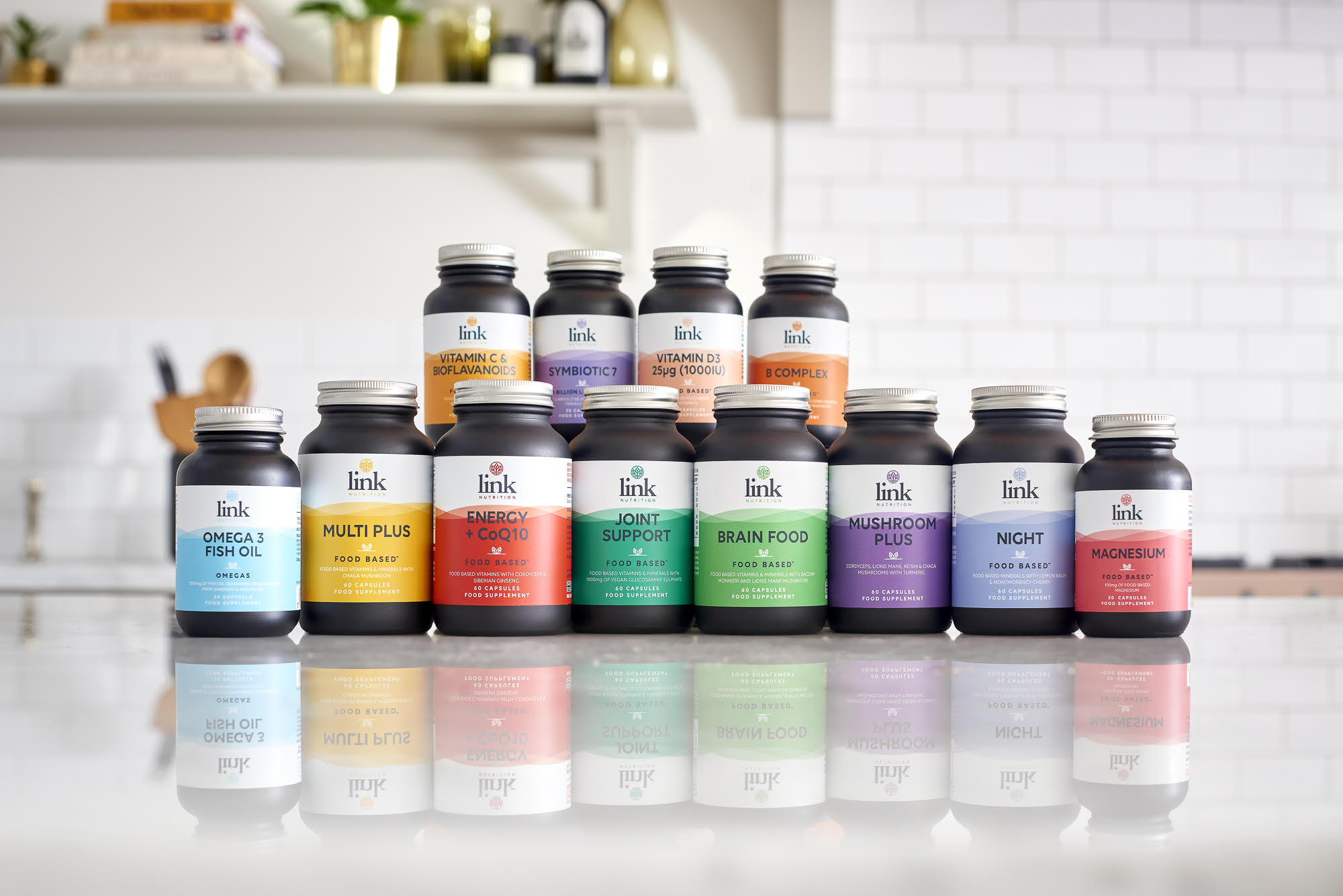
Having a little one, I am suddenly exposed to many more bugs and virus that are forever doing the rounds. I love the Mushroom Plus, as it combines medicinal mushrooms which are known for their immune supportive quality. It is a great way to give your immune system a daily boost so I can stay fighting fit even when the house it’s full of germs.
Magnesium is another daily must have for me. Magnesium is one of the most commonly deficient nutrients in our diets, with even in the highest sources of natural foods it is often poorly absorbed. A lot of supplements also suffer from the same issue. Link’s food-based magnesium form is much more bioavailable. Magnesium is needed for so many functions in the body. I find helps me deal with stress better, improves my sleep and minimises any monthly hormonal issues such as PMT and period pain.
Lastly is Energy + CoQ10, in this day and age, who doesn’t need more energy. CoQ10 is a vital nutrient in our cellular energy production, we produce it within the body, but by our late 20s, it starts to reduce production. B vitamins are vital also for this process. Then this supplement has two secret weapons cordyceps mushroom and ginseng, both power adaptogens that have been shown to improve energy levels with over-stressing the body.
Hip & Healthy readers can get 20% off by using the code HHLINK20 until the end of June. Shop Link Nutrition – Linknutrition.com
![]()

